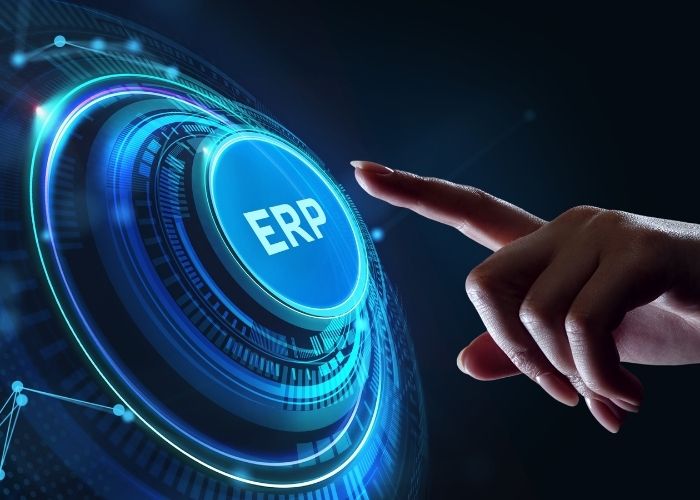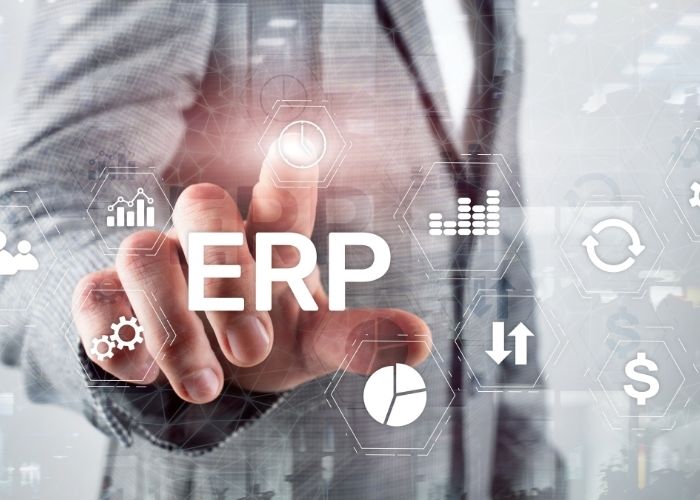Enterprise Resource Planning (ERP) systems have emerged as the backbone of efficient business operations across the globe. These comprehensive software solutions empower organizations to manage their resources effectively, from finances and employees to materials and operations. While ERP systems are known for their pivotal role in diverse industries, Istanbul, a vibrant city straddling Europe and Asia, has become a hub for global ERP consultation.
In this article, we delve into the world of ERP and how numerous companies in Istanbul are harnessing their expertise to consult with organizations worldwide. Istanbul's unique geographical location as a bridge between two continents has enabled its businesses to tap into a global market, offering invaluable insights and services in the realm of ERP systems.
Join us on this journey as we explore the significance of ERP solutions, the key players in Istanbul's ERP consultation landscape, and how their expertise is making businesses more scalable, adaptable, and streamlined worldwide. Whether you're a business owner seeking ERP solutions or an enthusiast curious about the evolving world of enterprise resource planning, this article will provide valuable insights into Istanbul's role in shaping the ERP consultancy sector on a global scale.
What is ERP? - Meaning of ERP
Enterprise Resource Planning (ERP) is a sophisticated software solution designed to help organizations efficiently manage their resources, streamline operations, and make informed decisions. At its core, ERP integrates various business processes and data into a single unified system, providing a holistic view of the entire organization's functions.

ERP systems encompass a wide range of modules, each tailored to manage specific aspects of a business. These modules can include:
- Accounting: Handling financial transactions, budgeting, and reporting.
- Sales and Marketing: Managing customer relationships, sales orders, and marketing campaigns.
- Human Resources: Overseeing employee information, payroll, and performance evaluations.
- Inventory Management: Tracking and optimizing inventory levels.
- Supply Chain Management: Coordinating the flow of goods and services from suppliers to customers.
- Manufacturing: Controlling production processes and optimizing manufacturing resources.
- Customer Relationship Management (CRM): Focusing on maintaining and enhancing customer interactions.
- Project Management: Managing project timelines, resources, and progress.
- Procurement: Handling the purchase of goods and services.
- Warehouse Management: Efficiently managing warehouse operations.
- Asset Tracking: Tracking and maintaining company assets.
- Inventory Management: Managing stock levels and inventory tracking.
ERP System Implementation
Implementing an ERP system is a strategic process that involves several phases, each crucial for its successful integration into an organization. Here's an overview of the typical phases in ERP system implementation:

Discovery: This phase involves assessing the organization's needs, setting objectives, and identifying the key stakeholders.
Planning: During this stage, a detailed project plan is developed, outlining the scope, timeline, budget, and resources required for the implementation.
Migration: Data migration is a critical step where existing data is transferred to the new ERP system. It's essential to ensure data accuracy and consistency.
Testing: Rigorous testing is conducted to ensure that the ERP system functions as expected, identifying and addressing any issues or discrepancies.
Deployment: The ERP system is rolled out across the organization, and users are trained on its functionalities.
Training: Comprehensive training programs are essential to ensure that employees can effectively use the ERP system to carry out their tasks.
Post-Implementation Support: After the ERP system is live, ongoing support and maintenance are crucial to address any issues, updates, or enhancements that may arise.
Successful ERP system implementation can significantly enhance a company's efficiency, accuracy, and decision-making capabilities. However, it's essential to choose the right ERP solution and approach implementation with careful planning and attention to detail. Istanbul's ERP consulting companies play a pivotal role in guiding organizations worldwide through these critical processes, making them more agile, adaptable, and efficient in today's competitive business landscape.
What are the Primary Business Benefits of an ERP System?
Implementing an Enterprise Resource Planning (ERP) system can bring about a multitude of benefits for businesses, regardless of their size or industry. These systems serve as a powerful tool to enhance operations, decision-making, and overall efficiency. Here are the primary business benefits of adopting an ERP system:

Improved Efficiency: ERP systems automate and streamline various business processes, reducing manual data entry, duplication of efforts, and the risk of errors. This increased efficiency translates into faster operations and quicker response times.
Enhanced Accuracy: With centralized data management, ERP systems provide a single source of truth for information across departments. This accuracy ensures that businesses can make well-informed decisions based on reliable data.
Effective Resource Management: ERP solutions enable organizations to efficiently manage their resources, including human capital, inventory, and finances. This optimization can lead to significant cost savings.
Advanced Reporting and Analytics: ERP systems offer robust reporting tools that allow businesses to generate insightful reports, analyze trends, and make data-driven decisions. This capability is crucial for strategic planning and forecasting.
Increased Collaboration: ERP systems break down silos within organizations by consolidating data from various departments into a single source of truth. This fosters collaboration, reduces errors caused by outdated or incorrect data, and ensures that everyone has access to the information they need.
Scalability: ERP systems are highly adaptable and can grow with your business. Whether you're a small startup or a large corporation, ERP solutions can be customized to meet your unique needs.
Customer Service Enhancement: By having access to real-time customer data, ERP systems empower businesses to provide better customer service. This includes more personalized interactions and quicker issue resolution.
Cost Reduction: Despite the initial investment, ERP systems can lead to long-term cost reduction. They help eliminate inefficiencies, reduce operational costs, and optimize inventory management.
Regulatory Compliance: Many ERP systems come with built-in compliance features, ensuring that businesses adhere to industry regulations and standards, such as Sarbanes-Oxley (SOX) or General Data Protection Regulation (GDPR).
Competitive Advantage: Businesses that implement ERP gain a competitive edge. They can respond more effectively to market changes, make quicker decisions, and deliver products or services more efficiently.
Efficient Supply Chain Management: ERP systems provide end-to-end visibility into supply chain operations, enabling businesses to make informed decisions about procurement, production, and distribution.
Quality Control: ERP systems often include tools for quality assurance and control, helping businesses maintain high product or service quality standards.
ERP systems are not just tools for large enterprises. They offer a wide range of benefits that can significantly impact the efficiency, competitiveness, and overall success of businesses of all sizes and across various industries. Istanbul's ERP consulting companies play a crucial role in helping organizations worldwide harness these benefits and navigate the complex world of ERP implementation and management.
Best ERP Systems for Companies
When it comes to selecting an Enterprise Resource Planning (ERP) system for your company, choosing the right provider is crucial. Among the top players in the ERP industry, one standout company is First Bit.

First Bit: A Global IT Powerhouse
First Bit is a global IT company with European origins, offering business automation and IT solutions to companies worldwide. With an extensive network of 100 branch offices in 8 countries including Turkey, First Bit has made its mark as a reliable provider of ERP systems and IT services.
For over 25 years, First Bit has been at the forefront of helping businesses transform their processes through comprehensive business automation solutions and a wide range of IT services. Their international team, comprising over 5000 professionals, is dedicated to meeting the diverse and complex business needs of clients worldwide, drawing from their extensive experience gained in over 290,000 successful projects around the globe.
Comprehensive ERP Solutions
Since 1997, First Bit has focused on developing business management software, resulting in the creation of more than 50 solutions tailored to various business sectors. These solutions cover a wide spectrum, including financials, accounting, HR, payroll, CRM, sales and inventory management, as well as distribution and manufacturing operations optimization.

First Bit's expertise extends to industry-specific automation, serving sectors such as trade, manufacturing, construction, HoReCa (Hotel/Restaurant/Café), and more. This industry-specific approach ensures that their ERP systems are finely tuned to meet the unique demands of diverse businesses.
With its extensive global presence, wealth of experience, and a diverse range of ERP solutions, First Bit stands out as a formidable player in the ERP industry. Companies seeking a reliable and comprehensive ERP solution provider can benefit from First Bit's expertise and tailored solutions to streamline their operations and achieve greater efficiency.
Frequently Asked Question
What is ERP in simple words?
RP stands for Enterprise Resource Planning. It's a software system that helps organizations manage and streamline various aspects of their business, such as finances, operations, and resources, in one unified platform.
What is an ERP system used for?
ERP systems are used to integrate and manage core business processes, including accounting, HR, inventory, sales, and more, to improve efficiency and decision-making.
What is ERP and how does it work?
ERP is a software solution that centralizes data and automates business processes, allowing different departments to access and share information in real-time.
Is ERP the same as SAP?
No, SAP is a specific ERP software provider. ERP is a broader category of software, and SAP is one of the companies that offer ERP solutions.
What are the 3 common types of ERP?
The three common types of ERP systems are Cloud ERP, On-Premises ERP, and Hybrid ERP (a combination of cloud and on-premises).
What is ERP vs CRM?
ERP focuses on managing the entire business, while CRM (Customer Relationship Management) is a subset of ERP that specifically deals with customer interactions and relationships.
What are ERP examples?
Examples of ERP systems include SAP, Oracle ERP Cloud, Microsoft Dynamics 365, and NetSuite.
Is Oracle an ERP system?
Yes, Oracle offers ERP solutions, such as Oracle ERP Cloud, which is a comprehensive ERP system.
Why is ERP needed?
ERP is needed to improve operational efficiency, data accuracy, and decision-making by integrating and streamlining business processes.
What is the main function of ERP?
The main function of ERP is to provide a centralized platform for managing and automating various business processes and data.
What are the 5 components of ERP?
he five components of ERP are software, hardware, data, procedures, and people.
Who uses ERP the most?
Large enterprises and organizations in various industries, including manufacturing, retail, healthcare, and finance, often use ERP systems the most.
What are the 4 types of ERP?
The four types of ERP systems are Enterprise, Small Business, Open Source, and Custom ERP solutions, each catering to different business needs and sizes.
 English
English  Indonesian
Indonesian  Urdu
Urdu  Taiwanese
Taiwanese  Russian
Russian  Romanian
Romanian  Portuguese
Portuguese  Persian
Persian  Macedonian
Macedonian  Korean
Korean  Japanese
Japanese  Italian
Italian  Indian
Indian  Hungarian
Hungarian  Greek
Greek  German
German  Croatian
Croatian  Chinese
Chinese  Bulgarian
Bulgarian  Arabic
Arabic  French
French  Spanish
Spanish 






